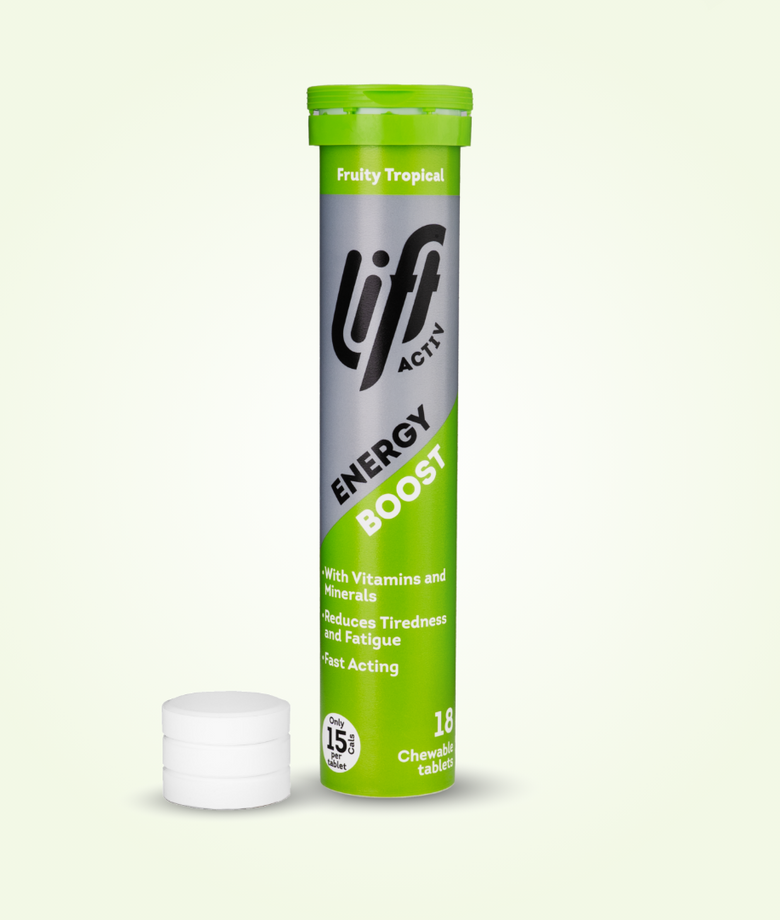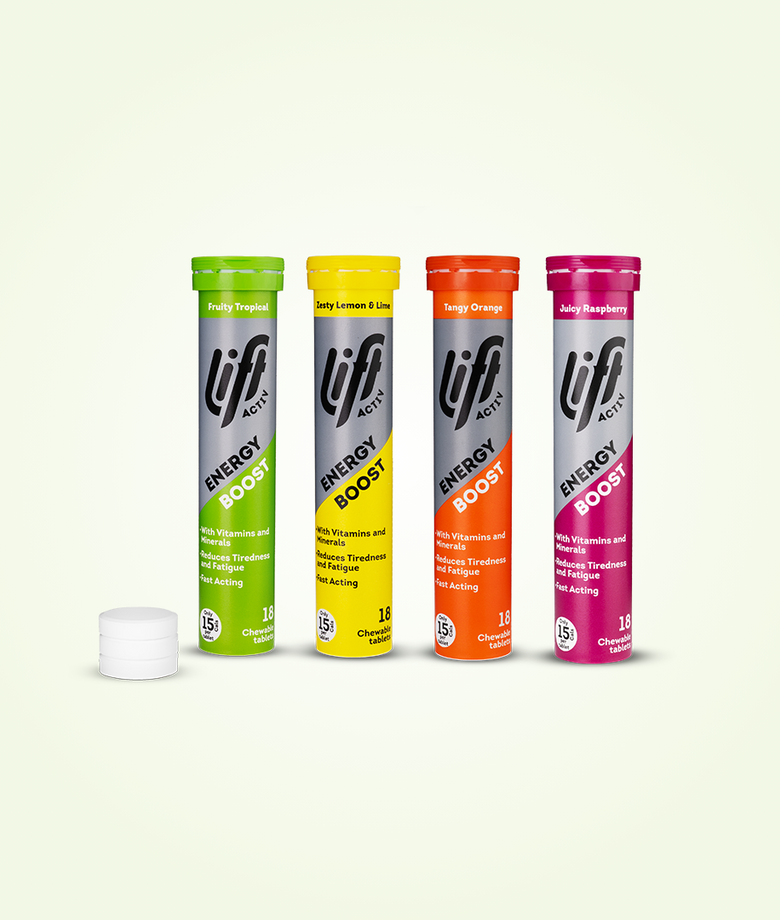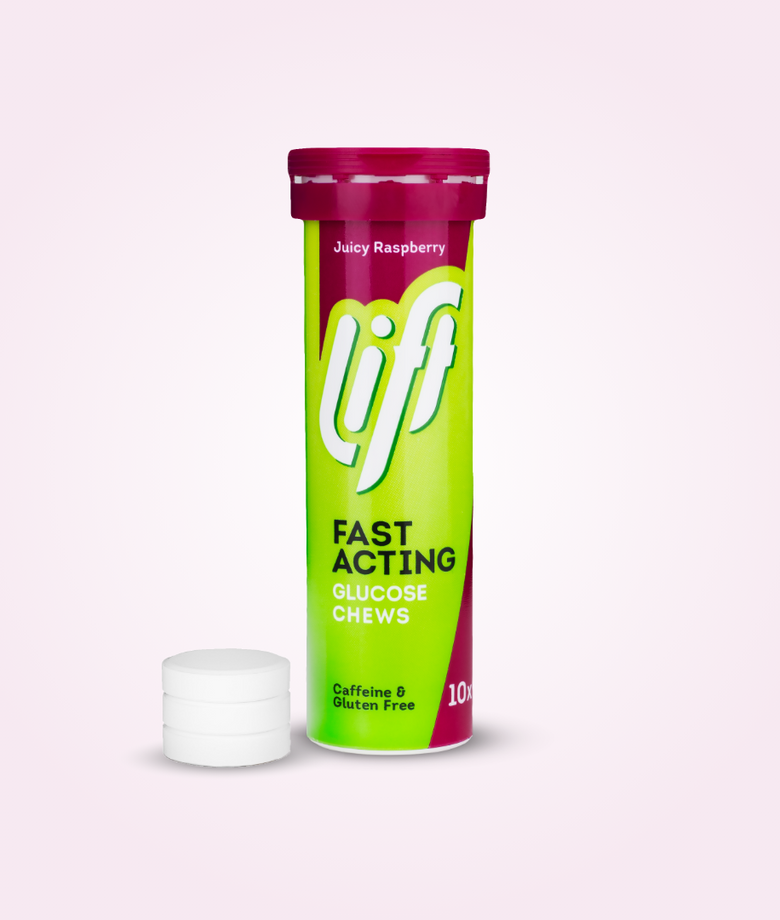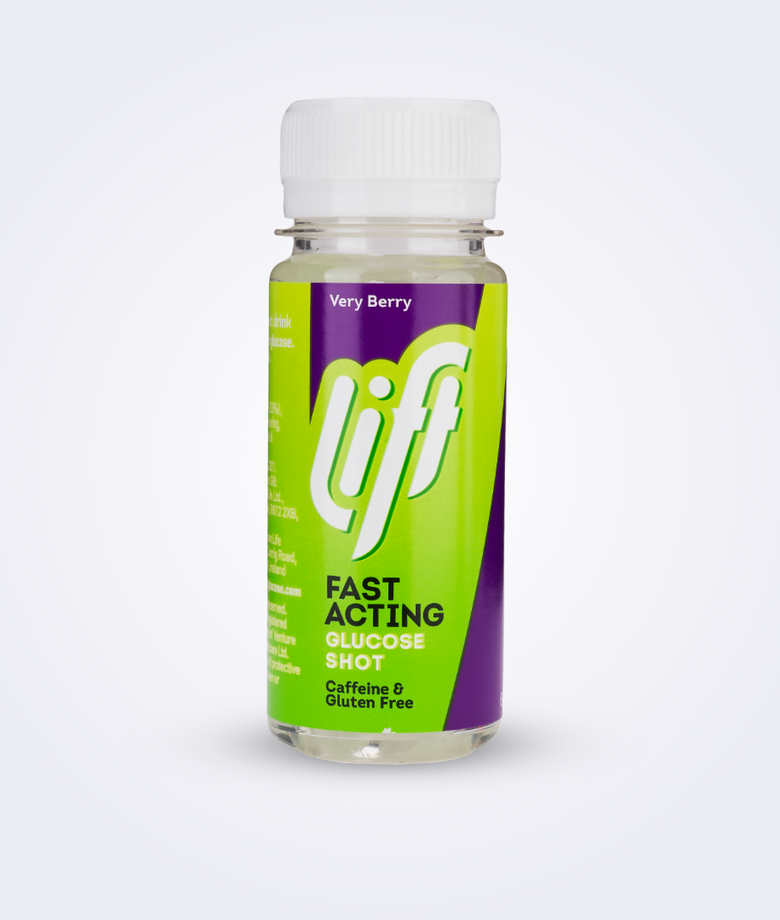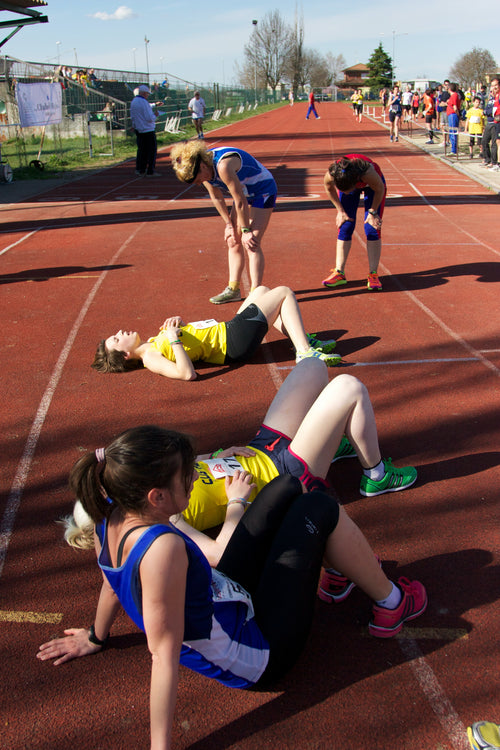Glucose Tablets for Sports - Lift Activ Energy Boost
It is also possible for people who do not have diabetes to experience symptoms of hypoglycaemia. This can occur if you have not eaten for an extended period, have been particularly active without eating or have other underlying health issues.
If you are regularly experiencing symptoms of hypoglycaemia, you should call 111 or contact a doctor immediately. Your doctor will most likely carry out a comprehensive examination to find out the root cause.
What is glucose and why do I need it?
Glucose is a form of simple sugar found in many fruits, nuts, and vegetables. It is also the body’s number one source of energy. When we eat, the body transforms carbohydrates into glucose before it is transported in the bloodstream.
Glucose travelling through your bloodstream at any given time is known as blood glucose or blood sugar. The body needs energy to function. Your pancreas releases insulin which helps the cells absorb glucose from the bloodstream, feeding your brain, organs, and muscles.
As we exercise, glucose is absorbed by the muscles via the blood steam. If there is not enough glucose or blood sugar the body usually does not have enough energy to function properly. This is when we can feel tired and fatigued.
This can happen when we fail to eat properly, exercise vigorously or take certain medications. The presence of too much insulin can also affect our blood glucose levels. This is why people with diabetes need to take insulin shots as they are unable to manage the amount of insulin they produce.
Keeping you ahead of the game
Glucose is especially useful for medium to high-intensity exercises that require sustained levels of activity. It can enable athletes to sustain performance at an elevated level for longer by delaying fatigue.
This means that you can improve athletic performance by eating carbohydrates before exercising. You can also make use of glucose tablets during exercise to elevate blood sugar levels.
Research has shown that dextrose, glucose found in glucose tablets, could significantly help sports performance.
Potential improvement in sports
The benefits of using glucose tablets in sports were tested in an eight-week study of 31 women on a state rowing team. The researchers did this by timing each athlete as they rowed around a typical sporting range to establish a baseline.
Next, they were asked to drink special beverages before and after every practice for eight weeks. Some of the drinks contained dextrose supplements while others contained ribose (another type of sugar). The athletes did not know which drink they got.
Finally, they were asked to row again at the end of the study to find out if there were any improvements. The researchers found that athletes in the dextrose group improved their rowing times by more than 15.2 seconds. This was 10 seconds faster than those in the ribose group.
Added Selected Vitamins & Minerals
These chewable glucose tablets are enriched with vitamins, helping athletes to power up. With added Vitamin C, the tablets offer a whole range of amazing health benefits that contribute to the normal collagen formation for blood vessels, to help the function of your bones and much more!
The added magnesium is especially beneficial for the contribution of electrolyte balance. During intense workouts or sports, electrolytes are lost through sweating, which can lead to muscle cramps and dehydration. Lift helps to restore the electrolyte balance in the body to get you feeling back in the game. The added magnesium works to improve the overall performance potential for athletes by also contributing to the reduction of tiredness and fatigue, helping you to stay active and alert for longer.
Prevent the effects of low blood sugar
Glucose tablets are especially useful for people susceptible to and with a history of hypoglycaemia. Also known as severe low blood sugar or low blood glucose, hypoglycaemia is a medical condition that occurs when blood glucose levels get dangerously low.
Most people begin experiencing hypoglycaemia when their blood sugar level drops below 4.0 mmol/L. However, this figure may vary from person to person depending on several factors.
The symptoms of low blood glucose may present themselves in several ways. They typically progress from confusion and drowsiness to changes in behaviour, coma, seizures, and in extreme cases even death. These symptoms may get progressively worse the lower the glucose level goes.
The best treatment for hypoglycaemia is to quickly increase the amount of glucose in your blood. This is usually in the form of fast-acting glucose tablets. You can also make use of other carbohydrates such as sweets, fruits, bread, or a glass of fruit juice.
Looking out for hypoglycaemia
You may experience an onset of hypoglycaemia when engaged in endurance sports. This may come in the form of confusion, rapid heart rate, shakiness, and anxiety.
Some people may feel mild to moderate symptoms of hypoglycaemia when this happens. But the condition may get worse if treatment is not introduced immediately. You may also be experiencing the effects of low blood sugar if you notice any of the following:
- Severe headaches and sweating
- Rapid or irregular heart rate
- Feeling weak, sleepy, or tired
- Trouble concentrating
- Blurred vision
- Pale, cold, or clammy skin
- Dizziness or light-headedness
If you are suffering from any of the above, you should immediately stop whatever you are doing and administer treatment quickly to increase blood sugar to acceptable levels. This includes using rapidly acting glucose tablets which can help raise your blood sugar quickly.
